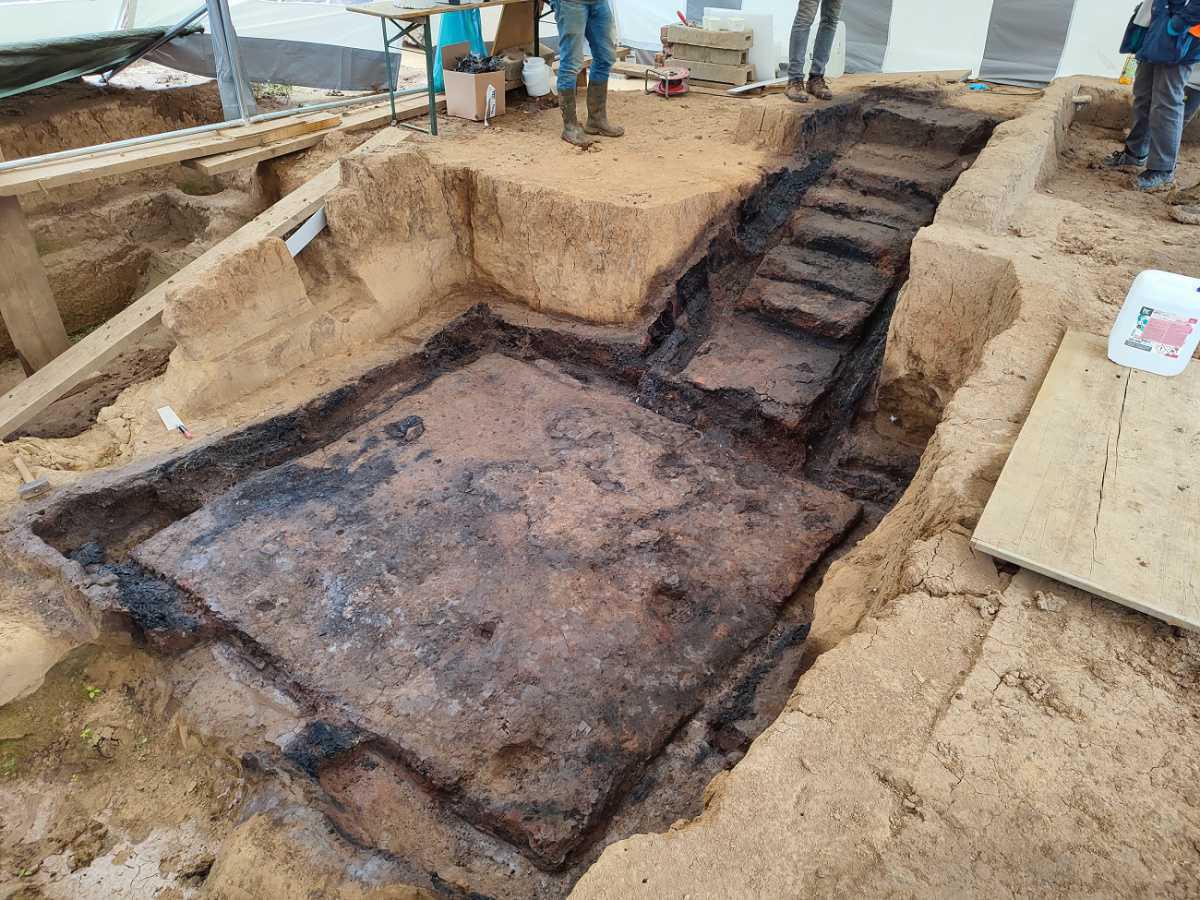Archaeologists from the Frankfurt Archaeological Museum have uncovered a well-preserved wooden celler in Frankfurt, Germany.
During the Roman period, Frankfurt’s modern districts of Heddernheim and Praunheim, once constituted the Roman town of Nida.
In AD 110, Nida was the largest town on the Limes and rose to prominence as the capital of the Civitas Taunensium.
The town had a population of around 10,000 inhabitants, however, by AD 259 the population went into decline, possibly attributed to the Alemanni's conquest of the Agri Decumates region.
A recent exavation conducted by archaeologists from the Frankfurt Archaeological Museum has uncovered a Roman residential house, situated on the southern side of the Roman town’s two main streets (platea praetoria).
Within the dwelling are the remains of a well-preserved wooden cellar with steps leading down a staircase. Throughout the cellar are the remains of charred beams, charcoal, and fire debris, indicating that hoes was destroyed by fire during antiquity.
The heat of the fire reached such an intensitivy, that tools were left abandoned on the cellar stairs along with a glass jar that was found partially melted. Archaeologists also found ceramic and glass vessels, and several unual objects made from metal.


